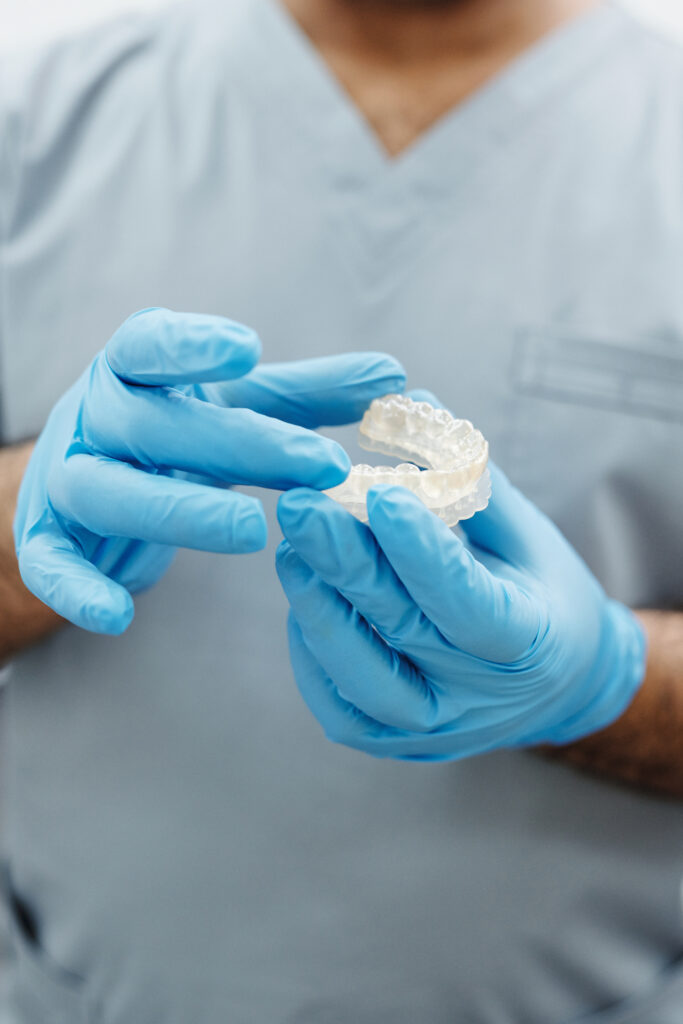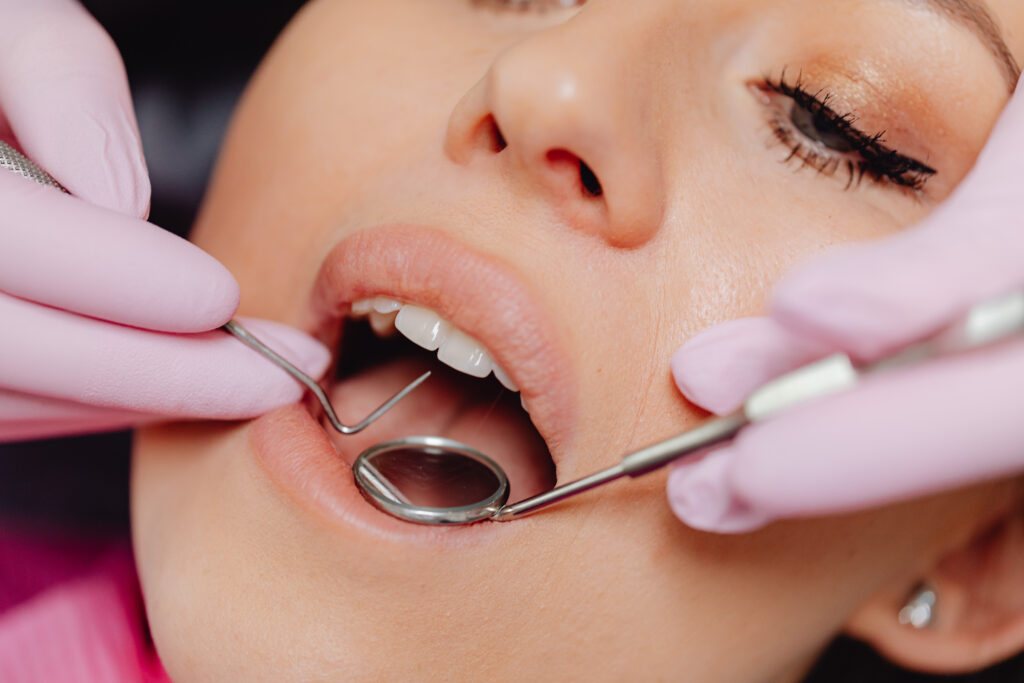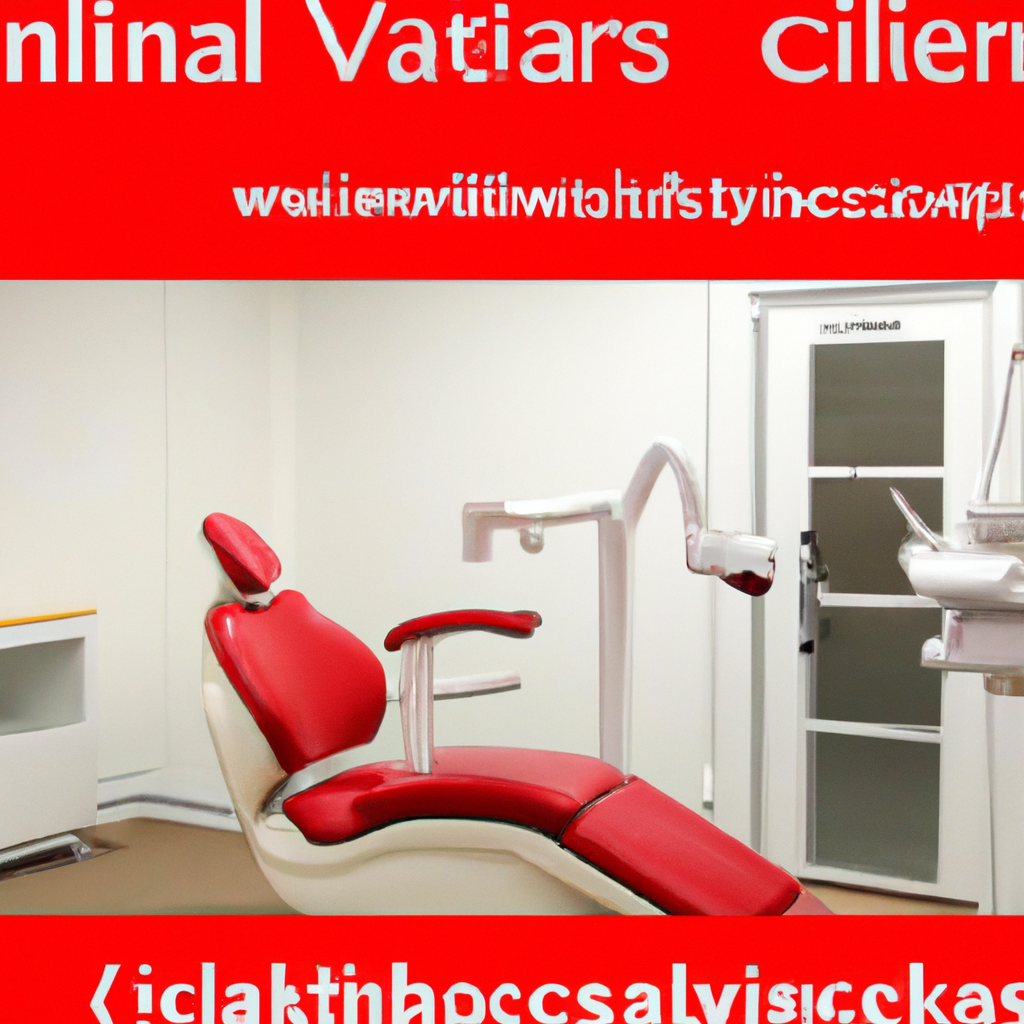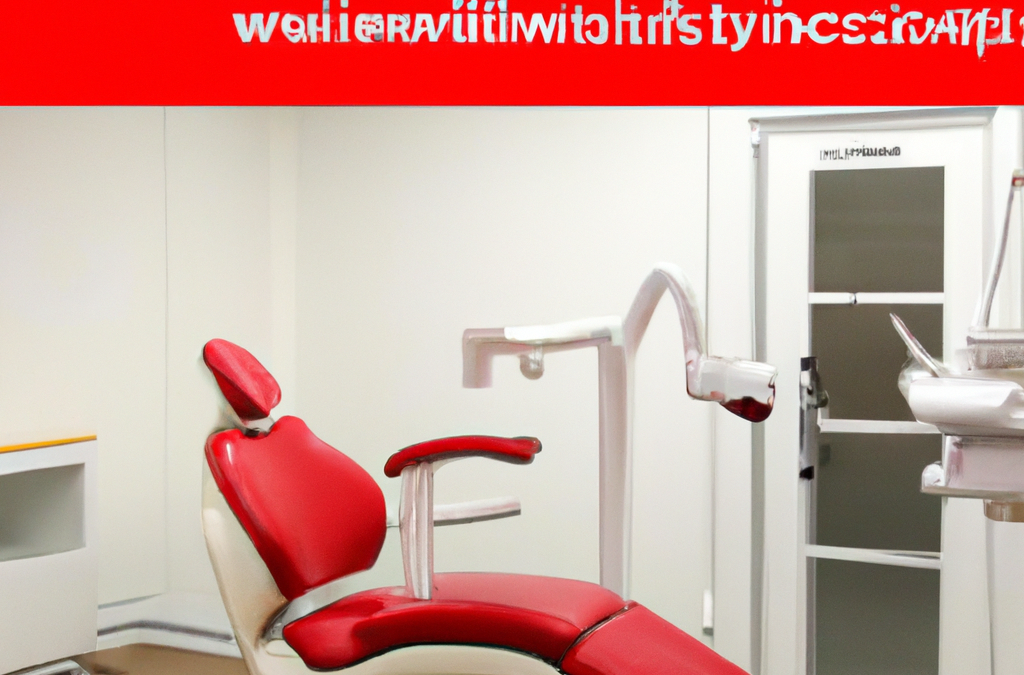If you’re a dentist or orthodontist looking to grow your dental business, then SEO services are the key to your success. By targeting dentists and orthodontists who are in need of an SEO agency, you can ensure that your business gets the visibility it deserves. And if you happen to be located in Philadelphia, mentioning that Ortho Advertising is based in the area will only add to your credibility. With effective SEO strategies tailored specifically for the dental industry, you can attract more patients, expand your reach, and ultimately boost your bottom line. So why wait? Take advantage of the power of SEO and watch your dental business thrive.
The Importance of SEO for Dental Businesses

1.1 Increased Online Visibility
In today’s digital age, having a strong online presence is crucial for any dental business. A well-executed SEO strategy can significantly increase your online visibility, making it easier for potential patients to find you. By optimizing your website for search engines, you improve your chances of appearing on the first page of search results when someone searches for keywords related to dental services in your area.
1.2 Targeted Traffic
One of the major advantages of SEO for dental businesses is the ability to attract targeted traffic to your website. By optimizing your website for relevant keywords, you can ensure that people who are actively searching for dental services in your area are more likely to find you. This targeted traffic is more likely to convert into actual patients, resulting in a higher return on investment for your marketing efforts.
1.3 Higher Conversion Rates
When your dental website appears on the top search results, it not only increases your visibility but also establishes your credibility. Studies have shown that websites that rank higher in search engine results pages (SERPs) are perceived as more trustworthy and reputable. By implementing effective SEO strategies, you can build credibility and trust with potential patients, leading to higher conversion rates.
1.4 Establishing Credibility and Trust
A dental practice that ranks highly in search engines is often seen as an authoritative and reliable source of information. By consistently producing high-quality content and optimizing your website for SEO, you establish yourself as an expert in the dental industry. This helps build trust among potential patients, increasing the likelihood of them choosing your practice over your competitors.
1.5 Staying Ahead of Competitors
In today’s competitive dental landscape, it’s essential to stay ahead of your competitors. By investing in SEO, you can gain an edge over rival dental practices. A well-optimized website that ranks higher in SERPs will attract more visitors and potential patients, giving you a competitive advantage. Additionally, by tracking and analyzing your competitors’ SEO strategies, you can identify areas for improvement and implement effective techniques that will keep you ahead in the digital race.
Choosing the Right SEO Agency for Your Dental Business
2.1 Assessing Experience and Expertise
When choosing an SEO agency for your dental business, it’s crucial to assess their experience and expertise in the field. Look for agencies that have a proven track record of successfully optimizing websites for dental practices. A reputable agency should be able to provide examples of their work and case studies showcasing the results they have achieved for their clients. Consider agencies that specialize in dental SEO and have a deep understanding of the industry’s specific requirements.
2.2 Understanding Dental Industry Specifics
Dental SEO is unique and requires a firm understanding of the dental industry. Look for an agency that comprehends the intricacies of dental practices, including the different types of dental services offered and the specific keywords that potential patients are likely to search for. A knowledgeable agency will be able to create and implement a tailored SEO strategy that targets your specific audience and increases your chances of attracting qualified leads.
2.3 Checking Client Testimonials and Reviews
Client testimonials and reviews can provide valuable insights into the effectiveness and reliability of an SEO agency. Look for agencies that have a strong reputation and positive feedback from their previous clients. Consider reaching out to some of their clients directly to inquire about their experience working with the agency. This will give you a better understanding of the agency’s capabilities and their ability to deliver results.

2.4 Examining Case Studies
Case studies are an excellent way to evaluate the performance of an SEO agency. They provide concrete evidence of the agency’s ability to achieve results for their clients. When reviewing case studies, pay close attention to the specific strategies implemented, the timeline of the results, and the overall impact on the client’s business. A reputable agency should be transparent about their past successes and be willing to share this information with potential clients.
2.5 Evaluating Communication and Reporting
Effective communication between the dental practice and the SEO agency is essential for the success of your SEO campaign. Look for an agency that maintains regular and transparent communication throughout the process. They should provide detailed reports on the progress of your campaign, including key metrics such as keyword rankings, organic traffic, and conversion rates. Additionally, the agency should be responsive to your inquiries and be readily available to address any concerns or questions you may have.
Keyword Research and Optimization for Dental Websites
3.1 Identifying Relevant Keywords in the Dental Niche
Keyword research is a critical component of any SEO strategy. Start by identifying relevant keywords in the dental niche that potential patients are likely to search for. Consider keywords for different dental services, such as “teeth whitening,” “dental implants,” or “orthodontic treatment.” Use keyword research tools to gather data on search volumes and competitiveness, allowing you to select the most relevant and valuable keywords for your website.
3.2 Analyzing Keyword Competition and Difficulty
Before finalizing your keyword list, analyze the competition and difficulty of each keyword. Evaluate how difficult it will be to rank for specific keywords based on factors such as search volume, competition from other dental practices, and the quality of existing content. Focus on targeting keywords that have a balance between search volume and competition, allowing you to optimize your chances of ranking in the search results.
3.3 Incorporating Keywords in Website Content
Once you have determined your target keywords, it’s essential to incorporate them strategically throughout your website content. Optimize your landing pages, blog posts, and service descriptions by including your target keywords naturally. However, it’s crucial to maintain a balance and avoid overstuffing your content with keywords, as this can negatively impact user experience and lead to potential penalties from search engines.
3.4 Optimizing Meta Tags and Headers
In addition to incorporating keywords in your website content, optimize your meta tags and headers with your target keywords. Meta tags, such as title tags and meta descriptions, provide search engines with information about your web pages. Include relevant keywords in these tags to improve the visibility and click-through rates of your pages in the search results.
3.5 Ensuring Mobile-Friendly Keyword Optimization
With the increasing use of mobile devices for online searches, it’s essential to optimize your keywords for mobile users. Ensure that your website is responsive and provides a seamless browsing experience across different devices. Consider the specific needs and behaviors of mobile users when selecting and optimizing your keywords. By prioritizing mobile-friendly keyword optimization, you can cater to the growing number of potential patients who search for dental services on their smartphones and tablets.
On-Page SEO Strategies for Dental Businesses
4.1 Developing High-Quality and Engaging Content
Creating high-quality and engaging content is at the core of any successful SEO strategy. Your dental website should offer valuable information and resources that are relevant and useful to your target audience. Develop informative blog posts, educational videos, and visually appealing infographics that address common dental concerns and provide solutions. By consistently publishing engaging content, you can attract and retain a loyal audience while also boosting your search engine rankings.

4.2 Creating Well-Structured URL and Navigation
The structure of your website’s URLs and navigation plays a crucial role in both user experience and search engine optimization. Ensure that your URLs are clean and descriptive, incorporating relevant keywords when appropriate. Optimize your website’s navigation by organizing your pages and content in a logical and intuitive manner, making it easy for visitors and search engine crawlers to find and navigate your website.
4.3 Optimizing Image Alt Tags and File Names
Images are an important element of any dental website, but they also present an opportunity for SEO optimization. Optimize your image alt tags and file names with descriptive keywords that accurately reflect the content of the image. This allows search engines to understand and index your images, increasing the likelihood of them appearing in image search results and driving additional traffic to your website.
4.4 Implementing Internal Linking
Internal linking refers to the practice of linking relevant pages and content within your website. This improves website navigation and creates a logical structure for both users and search engines. When implementing internal links, use descriptive anchor text that includes relevant keywords. This not only enhances the user experience but also helps search engines understand the context and relevance of your content.
4.5 Using Schema Markup for Dental Services
Schema markup is a form of structured data that provides additional information to search engines about your website’s content. By implementing schema markup for dental services, you can provide search engines with specific details such as your practice’s name, address, phone number, and operating hours. This can improve search engine visibility and attract potential patients who are actively seeking dental services in your area.
Off-Page SEO Techniques for Dental Websites
5.1 Building High-Quality Backlinks
Backlinks are a crucial factor in search engine rankings and off-page SEO. Focus on building high-quality backlinks from reputable and relevant websites within the dental industry. This can be achieved through methods such as guest blogging, collaborating with influencers, and reaching out to other dental professionals for partnerships. The more high-quality backlinks you have, the higher your website’s authority and visibility will be in search engine results.
5.2 Leveraging Local Directories and Listings
For dental businesses targeting a specific local area, leveraging local directories and listings is essential. Claim and optimize your Google My Business listing, as well as other local directories such as Yelp and Yellow Pages. Ensure that your business information is consistent and up-to-date across these platforms. This not only helps potential patients find you but also improves your local SEO rankings.
5.3 Engaging in Guest Blogging and Influencer Outreach
Guest blogging on reputable websites within the dental industry allows you to reach a wider audience and acquire valuable backlinks. Identify influential dental blogs and websites that accept guest posts and pitch them with unique and informative content ideas. Additionally, reach out to industry influencers and develop mutually beneficial partnerships that can help promote your dental business and increase your online visibility.
5.4 Social Media Marketing for Dentists
Social media platforms provide an excellent opportunity to engage with your audience, build brand awareness, and attract potential patients. Develop a social media marketing strategy that includes regular posting of informative and engaging content, sharing patient testimonials and success stories, and actively participating in relevant dental groups and discussions. By effectively utilizing social media, you can drive traffic to your website, improve your search engine rankings, and build a strong online presence.

5.5 Monitoring and Managing Online Reputation
Online reputation management is crucial for dental practices, as potential patients rely heavily on reviews and testimonials when choosing a dentist. Regularly monitor and respond to online reviews on platforms such as Google, Yelp, and Facebook. Encourage satisfied patients to leave positive reviews, as this can significantly impact your online reputation. Managing your online reputation not only enhances your credibility but can also improve your search engine rankings.
Local SEO for Dental Practices
6.1 Optimizing Google My Business Listing
Optimizing your Google My Business listing is crucial for local SEO. Ensure that your listing includes accurate and up-to-date information, such as your practice’s name, address, phone number, and website. Select the appropriate categorization for your dental services, and include high-quality images that showcase your practice. Encourage patients to leave reviews on your Google My Business listing, as positive reviews can improve your local search rankings.
6.2 Acquiring Positive Local Reviews
Positive reviews from satisfied patients have a significant impact on attracting new patients and improving your local SEO rankings. Encourage your patients to leave reviews on platforms such as Google, Yelp, and Facebook. Respond to reviews, both positive and negative, in a professional and timely manner to show potential patients that you value their feedback and are committed to providing exceptional dental care.
6.3 Targeting Local Keywords and Geo-Modifiers
Targeting local keywords and geo-modifiers in your SEO strategy can significantly improve your visibility in local search results. Optimize your website content and meta tags with location-specific keywords, such as “dentist in [city name]” or “dental clinic near me.” This helps search engines understand the geographical relevance of your website and enhances your chances of appearing in local search results for users in your area.
6.4 Engaging in Local Link Building
Building local backlinks is crucial for improving your local SEO rankings. Reach out to other local businesses, dental associations, and organizations within your community to establish partnerships and acquire local backlinks. This not only improves your website’s authority but also strengthens your local relevance, making it easier for potential patients in your area to find you.
6.5 Utilizing Location-Specific Landing Pages
Creating location-specific landing pages on your website allows you to target and optimize for different geographical areas you serve. Develop unique content for each location, including information about the local community, testimonials from patients in that area, and details about any specific services you offer in that location. By tailoring your content to specific locations, you can increase your visibility in local search results and attract patients from different areas.
Monitoring and Tracking SEO Performance for Dental Websites
7.1 Tracking Keyword Rankings and Organic Traffic
Regularly monitor your keyword rankings and organic traffic to assess the performance of your SEO efforts. Utilize SEO tools and software to track your rankings for target keywords and identify any fluctuations or trends. Additionally, analyze the changes in organic traffic to your website and correlate them with your SEO activities. This will help you identify areas that require improvement and adjust your strategies accordingly.
7.2 Analyzing Website Analytics and Conversion Rates
Analyze your website analytics and conversion rates to gain insights into the effectiveness of your SEO campaign. Evaluate metrics such as bounce rate, average time on page, and conversion rates for inquiries and appointments. This data can help you identify areas where you need to improve user experience and optimize your website to convert more visitors into patients.

7.3 Monitoring Backlink Profile and Competitor Analysis
Regularly monitor your backlink profile to ensure the quality and relevance of your inbound links. Use SEO tools to analyze your backlink profile and identify any toxic or low-quality links that may be negatively impacting your search engine rankings. Additionally, keep a close eye on your competitors’ backlink profiles and strategies to identify opportunities for improvement and stay ahead of the competition.
7.4 Utilizing SEO Tools and Reports
Leverage SEO tools and reports to gain deeper insights into the performance of your website and SEO efforts. These tools can provide valuable data on keyword rankings, organic traffic, website speed, and other important metrics. Use this data to make informed decisions about your SEO strategies and continuously optimize your website for better performance.
7.5 Adjusting SEO Strategies for Continuous Improvement
SEO is an ongoing process that requires constant monitoring and adjustment. Regularly assess the performance of your SEO strategies and make necessary adjustments based on data and feedback. Keep up with the latest trends and updates in the SEO industry, as search engine algorithms are continuously evolving. By continuously improving and adapting your SEO strategies, you can ensure that your dental website remains competitive and visible in search engine results.
Mobile SEO and Dental Websites
8.1 Importance of Mobile-Friendly Websites for Dental Businesses
Mobile devices have become the primary method of internet access for a large portion of the population. Therefore, it’s crucial to have a mobile-friendly website for your dental business. A mobile-friendly website provides a seamless and user-friendly experience for visitors accessing your site on their smartphones or tablets. It improves loading speed, navigation, and readability, enhancing user satisfaction and increasing the chances of converting mobile visitors into patients.
8.2 Implementing Responsive Web Design
Responsive web design is an approach that ensures your website automatically adjusts its layout and content based on the user’s device and screen size. Implementing responsive web design eliminates the need for separate mobile and desktop versions of your website, simplifying maintenance and improving user experience. A responsive website guarantees that your dental practice’s website looks and functions well on any device, leading to better mobile SEO performance.
8.3 Optimizing Website Speed and Performance
Website speed and performance are crucial factors in mobile SEO. Mobile users have less patience for slow-loading websites, and search engines prioritize fast and responsive websites. Optimize your website’s performance by minimizing file sizes, compressing images, and utilizing caching techniques. Regularly monitor your website’s speed using tools like Google PageSpeed Insights and make the necessary improvements to ensure a smooth browsing experience for mobile users.
8.4 Utilizing Accelerated Mobile Pages (AMP)
Accelerated Mobile Pages (AMP) is an open-source initiative that prioritizes speed and usability for mobile websites. By implementing AMP on your dental website, you can create stripped-down versions of your web pages that load almost instantly on mobile devices. This improves the overall mobile user experience and can lead to higher search engine rankings for mobile search results.
8.5 Testing and Improving Mobile User Experience
Regularly test and improve the mobile user experience on your dental website. Conduct user testing to identify any usability issues or obstacles that may hinder mobile users from accessing and navigating your website efficiently. Implement responsive design elements, such as mobile-friendly buttons and menus, and ensure that all forms and contact information are easily accessible on mobile devices. By continually optimizing the mobile user experience, you can maximize your website’s mobile SEO performance.
The Role of Content Marketing in Dental SEO
9.1 Creating Informative and Engaging Blog Posts
Content marketing plays a vital role in dental SEO as it allows you to establish your expertise and authority in the field. Creating informative and engaging blog posts that address common dental concerns, provide tips for maintaining oral health, and answer frequently asked questions can attract and engage your target audience. By consistently producing valuable content, you can generate more traffic to your website, improve your search engine rankings, and establish yourself as a trusted source of dental information.
9.2 Producing Video Content for Dental Education
Video content has become increasingly popular and is an excellent way to educate and engage your audience. Consider producing educational videos that explain different dental procedures, provide oral hygiene tips, or answer commonly asked questions. Share these videos on your website, social media platforms, and video-sharing platforms like YouTube. Videos not only enhance the user experience but also have the potential to go viral and attract a wider audience to your dental practice.
9.3 Developing Dental Infographics and Visuals
Infographics and visual content are highly shareable and can significantly increase the reach of your dental practice’s content. Create dental infographics that simplify complex dental procedures, explain key dental concepts, or provide oral health tips. Visual content is easily digestible and can be shared on various platforms, including social media and dental forums. This can drive more traffic to your website, improve your brand visibility, and enhance your overall SEO efforts.
9.4 Engaging with Dental Patients through Email Marketing
Email marketing is an effective way to engage with your existing dental patients and nurture relationships with potential patients. Regularly send informative and relevant email newsletters that provide oral health tips, announce new services, or share success stories from your practice. Encourage patients to subscribe to your mailing list through your website or during visits to your dental practice. Email marketing keeps your practice top-of-mind and can help drive repeat visits and referrals.
9.5 Expanding Content Reach through Social Media
Social media platforms provide a vast audience for expanding the reach of your dental content. Share your blog posts, videos, infographics, and other valuable content on social media platforms such as Facebook, Twitter, Instagram, and LinkedIn. Engage with your audience by responding to comments, addressing questions, and encouraging discussions. By leveraging social media, you can reach a wider audience, increase website traffic, and improve your search engine rankings.
Case Studies: Dental Businesses that Thrived with SEO
10.1 Dr. Smith’s Dental Clinic Success Story
Dr. Smith’s Dental Clinic, located in Philadelphia, was struggling to expand its patient base despite offering high-quality dental services. They invested in SEO services from Ortho Advertising, an SEO agency specializing in dental marketing. By optimizing their website for dental keywords, creating engaging content, and building high-quality backlinks, Dr. Smith’s Dental Clinic significantly increased their online visibility and organic traffic. As a result, their patient appointments doubled within six months, and they saw a substantial return on investment.
10.2 Orthodontic Center’s SEO Journey
An orthodontic center was facing tough competition in their local area and needed to stand out from rival practices. They partnered with Ortho Advertising, a Philadelphia-based SEO agency specializing in dental marketing. Ortho Advertising developed a comprehensive SEO strategy that included local SEO techniques, content development, and strategic link building. The orthodontic center’s website climbed to the top of local search rankings, resulting in a steady stream of qualified leads and an increase in new patient inquiries.
10.3 From Dental Startup to SEO Success
A dental startup was struggling to establish its online presence and attract new patients. They enlisted the help of an SEO agency with expertise in dental marketing. The agency conducted extensive keyword research, optimized the website’s content and meta tags, and implemented a local SEO strategy. Within a few months, the dental startup saw a significant increase in organic traffic and a steady flow of new patient inquiries. Their investment in SEO allowed them to quickly establish their brand and compete with established dental practices in their area.
10.4 Braces and Smiles Dental Practice: A SEO Triumph
Braces and Smiles Dental Practice was looking to expand its patient base and increase brand awareness. They partnered with an SEO agency specializing in dental SEO and implemented a comprehensive SEO strategy. By targeting local keywords, developing engaging content, and building high-quality backlinks, Braces and Smiles Dental Practice achieved top rankings in local search results. The increased visibility led to a significant influx of new patient appointments, allowing them to establish themselves as a leading dental practice in their community.
10.5 How SEO Transformed Dr. Johnson’s Dental Business
Dr. Johnson had been running a successful dental practice for several years but wanted to increase his online visibility and attract more patients. He hired an experienced SEO agency that specialized in dental marketing. The agency conducted in-depth keyword research, optimized his website, and implemented off-page SEO strategies. As a result, Dr. Johnson’s dental practice ranked higher in search results, leading to a significant increase in organic traffic and patient inquiries. SEO transformed his dental business, helping him reach a wider audience and establish his practice as a leading provider of dental services in his area.
In conclusion, SEO is a powerful tool for dental businesses to improve their online visibility, attract targeted traffic, increase conversion rates, and establish credibility and trust. Choosing the right SEO agency is crucial, as they will have the experience and expertise to implement effective strategies tailored to the dental industry. Keyword research and optimization, on-page and off-page SEO techniques, local SEO, monitoring and tracking performance, mobile optimization, content marketing, and case studies all play essential roles in achieving SEO success for dental websites. By investing in SEO and implementing these strategies, dental practices can thrive in the digital landscape and attract more patients to their services.

